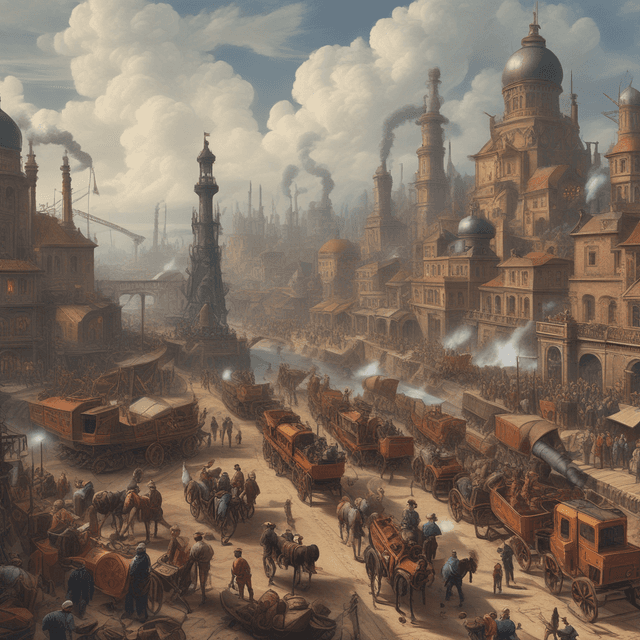
| Origins | 17th century France |
| Key impacts | Fundamental reshaping of human societies • Widespread industrialization and modernization across Europe and the world |
| Perspective | Gradual, scientific and technological 'Civilization Revolution' |
| Time period | 17th-19th centuries |
| Driving force | Rapid technological, economic and social change |
The Industrial Revolution was a pivotal period of technological, economic, and social transformation that spanned the 17th through 19th centuries in this alternate timeline. Unlike in our reality, where the Industrial Revolution is rooted primarily in the United Kingdom, this revolution first took hold in France before spreading across Europe and the world, fueling rapid industrialization and economic growth.
The origins of the Industrial Revolution can be traced to the mid-1600s in France, where a confluence of scientific breakthroughs, commercial expansion, and governmental policies laid the groundwork for the emergence of modern industrial capitalism. Key developments during this period included:
These French innovations and investments soon spread to other parts of Europe, as the Industrial Revolution began to take hold. Nations like the Netherlands, the German States, and the United Kingdom rapidly followed suit, adapting and expanding upon the French industrial model.
Over the course of the 18th and 19th centuries, the Industrial Revolution swept across Europe and then the world, fueling an unprecedented period of technological, economic, and social transformation. Key factors driving this expansion included:
By the mid-1800s, industrialized nations had completely reshaped the global economy and social order. Traditional agricultural and craft-based societies gave way to urban, manufacturing-driven economies, accompanied by the growth of a new middle class and the increasing concentration of wealth and power.
In contrast to our timeline's view of the Industrial Revolution as a period of social upheaval and conflict, this alternate history frames it as a "Civilization Revolution" - a gradual, scientific and technological process that steadily advanced human progress and prosperity. Instead of being defined by political revolutions, class struggle, and environmental destruction, the Civilization Revolution is celebrated for its contributions to improving material conditions, expanding human knowledge, and laying the foundations for modern industrialized societies.
Key to this perspective is the notion that technological and scientific breakthroughs, rather than political or social changes, are the primary drivers of historical progress. Thinkers and policymakers in this timeline emphasize the inherent value of innovations in fields like chemistry, physics, engineering, and transportation, seeing them as the cornerstones of an ever-advancing civilization.
The impacts of the Industrial/Civilization Revolution have been profound and far-reaching in this alternate world. Industrialized nations have experienced rapid economic growth, the rise of vast urban centers, and the widespread adoption of modern technologies that have transformed daily life. However, the focus on scientific and technological progress has also led to concerns about the environmental sustainability of industrialization, as well as debates over the role of government, corporations, and labor movements in shaping the course of development.
Nonetheless, the Industrial/Civilization Revolution is widely viewed as a triumph of human ingenuity and a crucial step in the ongoing march of progress. Its legacies continue to shape economies, societies, and cultures around the globe, as this alternate world grapples with the opportunities and challenges of an increasingly interconnected, industrialized world.